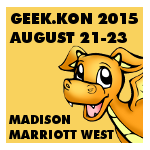
NaNoWriMo starts on Sunday, and I’m using this week to prepare for it. The 50,000 word count for a singular work will be on top of my writing, which includes some editing and spec work this month as well. Knowing that my plate is going to be full (and then some) means that I have to plan in advance for an insanely busy next couple of weeks. I’ve been through this kind of writing crunch before, which means I know I can do it again.
Here’s some of the steps I take to plan for an insane month. Your mileage will vary, as your living arrangements and family life might be different than mine.
1.) Remove or reduce day-to-day decisions. What I wear, what I’m going to eat, when I need to pay bills, chores…these are some of the examples of day-to-day decisions that take up headspace. When I’m slammed, I do a lot of meal planning/crock pot recipes and set out my clothes the night before. Yes, this means I am wearing pants(1) this month. Though I work from home, these types of decisions can impact both my health and productivity, so planning these things ahead of time means I don’t have to think about it. Mind you, this includes household maintenance tasks like chores and laundry as well, which means I have to communicate and sort out responsibilities with my partner. I might use my Sunrise app as reminders, or program my alarm at the same time every day, too.
2.) Eliminate distractions(2). You’ll probably notice that I’ll either be on social media a lot less, or at certain times. I’ve got a dual monitor along with my phone, and I’ve been playing around with how and when I post. For this month, I haven’t decided yet what I’m going to do, because maintaining it isn’t a huge priority for me for promotional purposes. However, there are other distractions that might occur. E-mails, phone calls, doorbells ringing… One of the digital solutions I use, is to schedule times when I respond and send out e-mails. I’ll sometimes be clear about when I expect to respond if a decision is required, too, because there is a tendency to expect one right away even when it’s not pressing. Of course, in some cases it is, but managing expectations for communication can go a long way to save time. I cannot stress the importance of sending clear e-mails enough, and I feel it is an art form. In addition to these tips, I’m shutting off my phone, wifi, as well as my second monitor.
3.) Plan downtime. This often gets missed, but it is hugely important. Often, I see people scheduling what they’re doing on the calendar. It is equally as important to schedule when you’re not doing anything, or when you need to take a break. This might include coffee and drinks with friends, or it might be to watch a movie or make dinner. I am also not going to sit for hours and hours at a time, because this isn’t healthy. Instead, I’m going to set up a schedule for the first week and then adjust from there. It also means, however, that I am planning for some flexibility and additional options for downtime than I might normally. Examples of mini-breaks range from origami to playing Tetris to taking a walk outside or stretching.
4.) Manage noise and song selections. Okay, so I’ve often mentioned how focused I am on sound. I have a pair of noise-canceling headphones, but I also have instrumental playlists set up on Pandora and my iTunes account. The other thing I do, when I’m in a heavy production month, is eliminate the amount of media that has words in them or, alternately, new words. I’ve listened to Hitchhiker’s Guide to the Galaxy radioplay a thousand times, for example, and it fades into the background for me. One app and browser that replicates coffee shop noise is Coffitivity, but honestly? Video game soundtracks are fantastic to listen to, because the compositions are interesting and I don’t visualize a scene
5.) Say No to Research. The story that I’m writing for this doesn’t require any research, other than a few questions that I’m clearing up ahead of time. Even if I did need to do some research… That rabbit hole can wait. It is a time sink to click on links and read more information, and while a normal (e.g. non-insane) work day might allow for a certain percentage of reading, a high word count month does not for me. Mind you, a high word count month is not sustainable all the time for obvious reasons, including the physical strain it can take on your hands and wrists, but cutting down on the time I’d normally spend reading means I’ll be a lot more focused on my manuscripts.
6.) Devise a Two-Month Business Plan. This is basic business planning 101 for me. By putting together a two month business plan, instead of a 30 day writing plan, I’m thinking above and beyond NaNoWriMo. Now, for me this is completely necessary. My plans incorporate smaller projects and larger initiatives that I am writing for other people and pursuing on spec. However, I am not just thinking about November, because if I focus solely on this month, then I’ll be completely unprepared for December. This technique circles back to eliminating distractions, and it means that I’ve got a foundation to work from the following month. I don’t expect to be married to next month’s business plan, mind you, but it removes any overlap so I don’t miss anything.
7.) Factor in Flexibility. Things are going to go wrong. I might run out of mac and cheese. I might get suckered into a doorstop novel. Brain might revolt and ooze out of my head. It could snow. Anyway, my point is that there a lot of things that might go wrong, and factoring in a disaster recovery plan for me helps keeps words flowing. However, there’s always that chance that I have to stop, and I need to know that’s okay. I got really sick one year, and that pretty much ended my ability to keep writing because I had medicine head for two weeks. I can still write, mind you, just not as much nor as good. I picked it back up after NaNoWriMo was over, so I still finished my initial goals, even if it took me a little longer.
8.) Outline, List, and Plot. When I know what I’m writing, I tend to write faster. Even if I don’t adhere to every aspect of an outline, coming up with a bucket of potential “up the stakes” possibilities, motivations, etc. and having that handy ahead of time is hugely useful for writing. Thus, I’ve explored possible options for this particular story by capturing them in a list of words I can leverage while I’m writing, or to further brainstorm and use those as a jumping off point. It’s a little bit like plotting, but it’s less tied to the specific story structure and more focused on aspects of a character or a scene. If I got REALLY crazy, I might put together word lists, but that sort of thing usually happens after for me, during the revision process as I refine.
…and that’s it! Those are some of the things I am doing to prepare for NaNoWriMo. To the word mines! With a large, bloody axe!
(1) Not wearing pants is so overrated. I keep this regulated to casual Fridays or slothy Sundays.
(2) My agency will be doing a month long series of posts, including an article from me about your writing workspace. I’ll be sharing more information as we proceed.
Mood: La la la!
Caffeinated Beverages Consumed: Thar be coffee
Work-Out Minutes Logged Yesterday: Um. Sorry, yo.
In My Ears: Beats for Studying playlist on Pandora
Game Last Played: Diablo III
Book Last Read: Um… Well, I’m starting Howl’s Moving Castle.
Movie/TV Show Last Viewed: Once Upon a Time
Latest Artistic Project: STILL EDITING.
Latest Fiction/Comic Release: Gods, Memes, and Monsters
Latest Game Release: Dread Names, Red List for Vampire: the Masquerade and Ghosts in the Black for the Firefly RPG.
Current State of Projects: Read my latest project update and My Departure from the Conan RPG.




